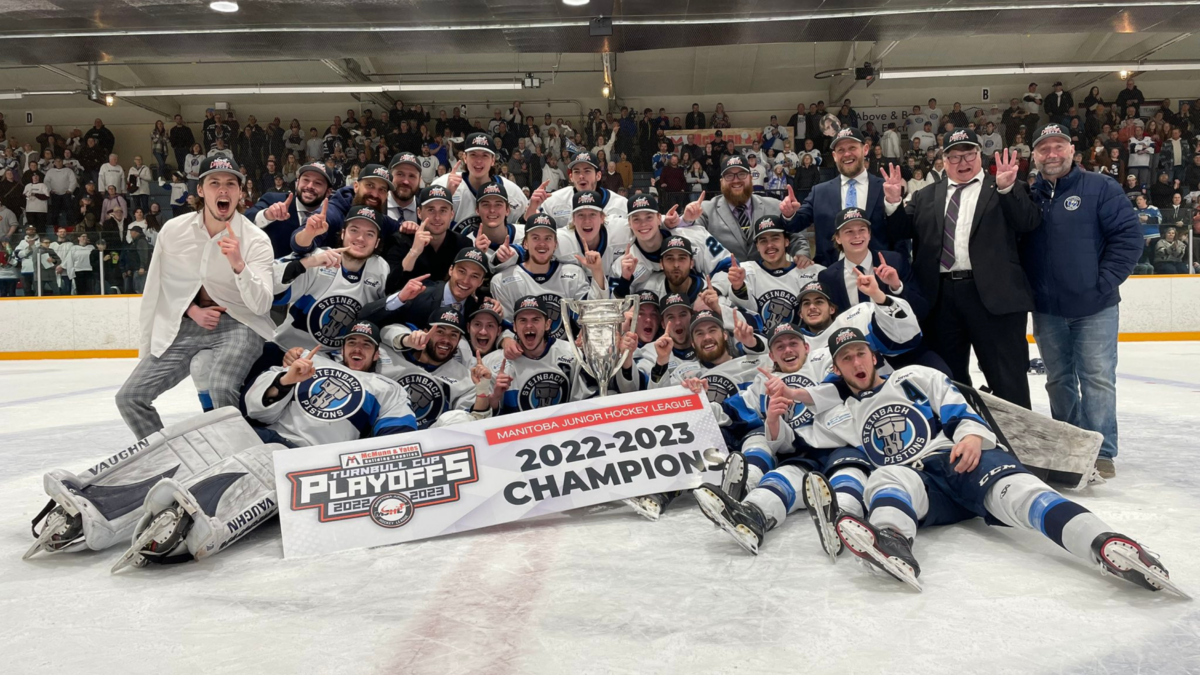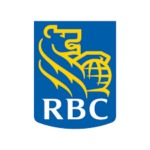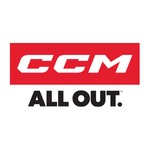It was a move that may not have drawn a lot of attention from outside Southeastern Manitoba at the time, but it was something that put the Steinbach Pistons onto a path of success for over a decade.
The headline read: “The Steinbach Pistons have been purchased by a group of local investors and have become a community-owned organization.” That announcement launched one of the MJHL’s most consistent and dominant franchises in the league’s history.
Head Coach and General Manager Paul Dyck remembers when it was decided it would be a community franchise. “I felt strongly that it would be a very positive move for the team. It brought with it the support of many strong business leaders who had a desire to see the team not only remain in Steinbach but thrive and be an active part of our community. Of course, in hindsight, it was the right decision.”
Since that time, the Pistons have celebrated an ANAVET Cup Championship along with 3 Turnbull Cup Championships, including the 2022/23 season.
Dyck says at the Junior A level, it’s really hard to defend a title or even be in that position year after year. “There are so many new faces that were not here last year. (The past) might not have much meaning to them other than knowing they’re on a team on a team that can contend. With the amount of turnover this year in particular (bringing back just 9 players from last year’s winning squad), that page was turned pretty quickly.”
To go along with the three championships, the Pistons have been to the MJHL finals 3 times but fell short in their bid to win it all, including falling in game 7 on home ice in 2021-22. Having been both chasing and defending, Dyck says the motivation is not so different regardless. “It’s a question people ask, do you love winning or hate losing more? No one enjoys losing, obviously, but when you get that special feeling of winning, how rewarding it is as a team, to me that’s the motivator. I’d love to see it happen for all our guys again, for the guys from last year, they’d love the opportunity to hoist the cup again but share it with a new group of teammates, to earn it. Every year is different but to be able to live that again, that’s my motivator personally.”
Through 20 games this year, the Pistons are 17-2-1, they’ve had similar records throughout the last few years and have always finished near the top in points. Dyck says it’s been a learning experience having to deal with the challenges of being a GM at the JR A level. “The work never ends. That’s what we know in this industry. We know the turnover from our group, I don’t know the average time spent in our program, but we have had a lot of players come in, had success in that first year and you believe they’ll be with you the following year but then they decide to go a different advancing level. It’s a real positive, positive for them because they want to use us as a steppingstone to the next level and we want to play a part in their development. It really is a challenge to GM’s in our league to replace those players, not only as players but that level of player. If you’re at the top of the heap one year, it’s hard to get back there the next year when you lose half your team. It’s a great challenge but a challenge that I love, I enjoy trying to retool. Every year, we want to be known as a program where players view us as a contender.”
For Dyck, one of the longest tenured coaches in the MJHL, watching the league grow over the years and produce so much talent to different levels, he says it’s easy to see why so many players want to come to the MJHL. “When you’re a player that’s 15,16,17-years-old and you have dreams about being a hockey player that gets to a certain level, you’re looking for how to do that, they can look at the MJHL and see a path. That’s very beneficial for all the teams in our league and we’ve been doing a really good job at that overall. There’s been tremendous advancement from our league because it’s been a priority for our league with the showcases, putting a spotlight on players to be seen by Canadian Universities, Western Hockey League teams, NCAA Division 1 and 3, all the way up to the NHL level. It’s all very encouraging for the future of our league.”
The Steinbach Pistons don’t judge success solely on playoffs, finals, or even championships. Developing players both on and off the ice is something the organization takes a lot of pride in. Steinbach has seen many players commit to different programs at different levels and it’s something that means a lot to Dyck, even if he’s a bit modest about it. “We’ve been pretty lucky to attract some good players. Recruiting is a big part of that for us. It’s exciting to see guys advance, it’s really cool to see a guy play and find success at college or pro levels. To hear them talk about someone and then tie in that he was a Steinbach Piston, that was what we really hoped for. There was a time we didn’t have that hear. It’s neat to hear guys reflect on their time in Steinbach and how it impacted them. That’s just our individual story, there’s more throughout our league. So many guys have had success in the MJHL and have gone on to do amazing things. As a coach, winning is terrific. It’s awesome and it’s important for the organization to have success, long playoff drives… but when you have someone who’s worked eight or nine years to get a college commitment, that’s been his dream and they get one, that’s the most rewarding days of the year.”
Being around the league now for a few years, Dyck also values the relationship with other coaches and GMs in the MJHL. It’s a job few can understand and says it’s funny how things can evolve over time. “I think when you first get into it, you’re trying to earn your stripes and earn the other coaches’ respect in the league. I’ve been in it now for a few years, I’m maybe longer in the tooth than most in our league but I’m still having a lot of fun. To build relationships so when coaches hit certain milestones to send them a message, have that mutual respect. I think about Blake Spiller in Portage, he’s someone with a team that’s been to the top of the mountain so many times, watching from afar on what they were doing and how hard it was to be a contender and while we didn’t have much of a relationship back then, it’s changed in the last 8 or 9 years. It’s a really neat group to be in. Prior to games, you can have a chill conversation, sure when the game starts you want to win, but at the end of it all, you can still have a friendship, a conversation with them and it means a lot.”
The Steinbach Pistons have three words they’ve lived by for years now. Through all the highs and lows, the mantra has remained the same. “Character, Leadership, and Integrity,” the veteran bench boss says with a grin. “They’ve been the foundation for us. When we’re recruiting, those are qualities we look for in the individuals. The words are visible in our room. It’s become important to our guys, they want to live that, they want to reflect those principles. It’s a big part of developing as people away from hockey. We want to develop hockey players but most importantly, when they leave here and their families look back at their time in Steinbach, there was character development, they lived a life of integrity and they became leaders. There’s a lot in those three words and hopefully they impact them when they leave here and they feel like there has been growth in those areas.”





































